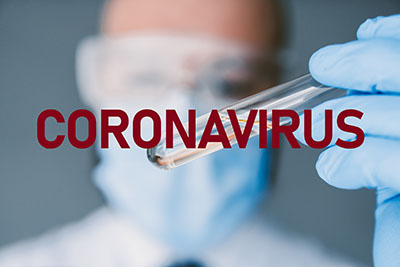
Better Business Bureau Serving Western Virginia is warning that scammers are coming out of the woodwork to exploit the coronavirus crisis to steal money and/or confidential information from consumers and businesses.
The newest COVID-19 scam is a “mandatory” test scam received by text message. BBB offers new information about this scam, tips on how to avoid becoming a victim, and access to our BBB Coronavirus Consumer Resource Center.
First, it was fake masks, then fake government grants, and now it’s a fake COVID-19 test. In the past few days, BBB Scam Tracker has received numerous reports of phony text messages claiming to be from a government agency.
“Scammers are coming out of the woodwork to exploit the coronavirus crisis to steal money and/or confidential information from consumers and businesses,” says Julie Wheeler, President and CEO of BBB Serving Western Virginia. “The government will never ask you to pay a fee or provide your SSN, credit card, or bank account number to get a stimulus payment,” says Wheeler.
How the Scam Works
You get a text message that looks like it comes from the US federal government. Current reports say that scammers are impersonating the US Department of Health and Human Services, but they are unlikely to stop there. The message tells you that you must take a “mandatory online COVID-19 test” and has a link to a website. But there is no online test for coronavirus.
These are far from the only coronavirus text message scams (often known as “smishing” for SMS phishing). BBB has also gotten reports of texts urging recipients to complete “the census” or fill out an online application in order to receive their stimulus check.
No matter what the message says, don’t click! These texts are phishing for personal information. They also can download malware to your device, which opens you up to risk for identity theft.
Tips to Spot a COVID-19 Text Message Scam
- Government agencies do not typically communicate through text messages.
- Ignore instructions to text “STOP” or “NO” to prevent future texts. This is a common ploy by scammers to confirm they have a real, active phone number.
- If you think your text message is real, be sure it’s directing to a web address like “gov” or “agency.ca,” not “agency.otherwebsite.com.”
- Check for look-alikes. Be sure to do your research and see if a government agency or organization actually exists. Find contact info on your own and call them to be sure the person you’ve heard from is legitimate.
For More Information
For more consumer tips regarding COVID-19, see BBB Coronavirus Consumer Resource Center.
For more business tips, see BBB Coronavirus Business Resource Center.
If you’ve spotted a scam (whether or not you’ve lost money), report it to BBB.org/ScamTracker. Your report can help others avoid falling victim to scams.
Report COVID-19 Price Gouging, False Advertising, and Other Complaints to Your BBB
Price gouging is illegal, and the Office of the Attorney General has the authority to prosecute any business that engages in price gouging after a disaster has been declared by the governor or president. The attorney general has issued stern warnings about price gouging to businesses in times of disaster, but you should still be on your guard. Report false advertising, price gouging, and other complaints to your BBB.










